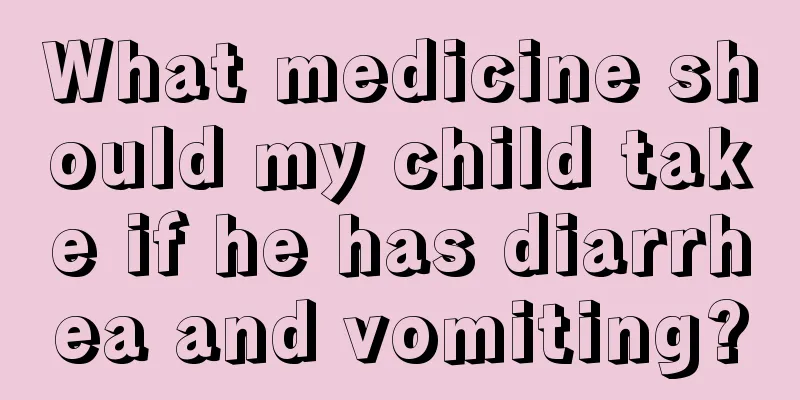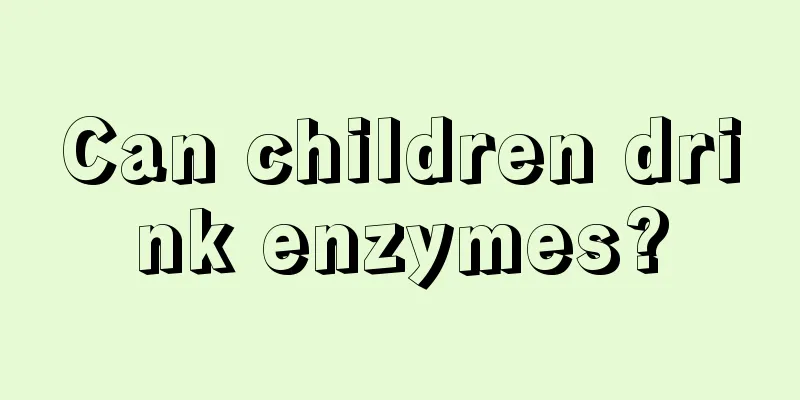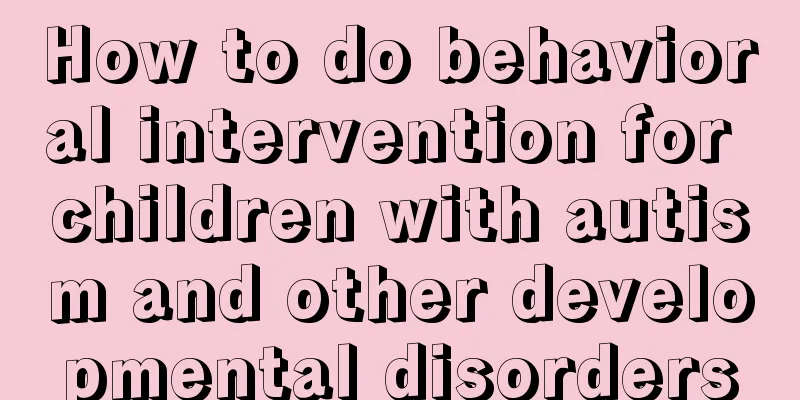What medicine should my child take if he has diarrhea and vomiting?

|
Children's vomiting and diarrhea are mostly caused by gastrointestinal discomfort. It is most likely caused by enteritis, especially in the hot summer weather, and many fruits are not washed thoroughly, or the child eats spoiled food and suffers from abdominal discomfort. However, when a breastfed baby has diarrhea, it is best for the mother to drink more salt water to dilute her breast milk. Vomiting is a pathological phenomenon, common in diseases such as acute enteritis, gastritis, pyloric spasm, hypertrophy, stenosis, pneumonia, meningitis, etc. Its main characteristics are nausea, increased abdominal pressure, frequent vomiting, large amounts of vomiting, often containing milk lumps and stomach contents, and even mixed with green bile, and sometimes vomiting is in the form of jets. Due to the existence of the primary disease, the sick child often looks painful and cries incessantly when vomiting.When parents find that their children have vomiting symptoms, they must pay great attention and go to the hospital for diagnosis and treatment in time. There are many causes of diarrhea in infants and young children, which can be roughly divided into two categories: One type is caused by non-infectious factors, such as improper diet or weather changes, which can cause diarrhea. Diarrhea caused by diet includes eating too much or too little; changes in food ingredients, adding too much sugar (conversely, too little sugar intake can easily cause constipation); adding complementary foods too quickly, causing discomfort, weaning children in hot weather, etc. Weather changes, such as children catching a cold, can cause intestinal dysfunction; hot weather can reduce the secretion of gastric acid and digestive enzymes, and indigestion can cause diarrhea. The other type is caused by infectious factors, such as unclean feeding utensils or food used by children, which allow bacteria to enter the body and cause diarrhea; long-term use of broad-spectrum antibiotics can cause intestinal flora imbalance and cause diarrhea; when children suffer from acute upper respiratory tract infection, pneumonia, otitis media, urinary tract infection, pharyngitis and other diseases, they can all develop diarrhea due to fever and the influence of pathogen toxins.If a breastfed baby has diarrhea, do not wean him/her easily. At this time, you can shorten the time of each feeding and let the baby eat the first half of the milk. Because the first half of breast milk contains more protein, it is easy to digest and rich in nutrition, while the second half contains more fat and is difficult to digest. If necessary, the mother can drink a large glass of light salt water half an hour to an hour before breastfeeding to dilute the milk and then breastfeed the child.
The following foods not only provide the necessary nutrients for babies, but also have certain antidiarrheal effects. 1. Scorched rice soup: Grind rice flour or milk cream into powder, fry until browned, then add water and appropriate amount of sugar, and boil until it becomes a thin paste. Scorched rice soup is easy to digest, and its carbonized structure has a good adsorption and antidiarrheal effect, making it the first choice food for infants with diarrhea. 2. Carrot soup: Carrots are alkaline foods. The pectin they contain can form stools and absorb pathogenic bacteria and toxins in the intestines. It is a good antidiarrheal and antibacterial food. The method of making carrot soup is as follows: wash the carrots, cut them to remove the stems, cut them into small pieces, add water and cook them until they are soft, then filter them with gauze to remove the residue, then add water to make soup (at a ratio of 500 grams of carrots to 1000 milliliters of water), and finally add sugar and boil. Take 2 to 3 times a day, 100 to 150 ml each time. Stop using after diarrhea improves. 3. Applesauce: Apple is also an alkaline food, containing pectin and tannic acid, which has the effects of absorption, astringency and antidiarrhea. Take a fresh, soft apple, cut it in half, and use a mixing spoon to scrape it into a paste. |
<<: What to do if your 12-year-old child is rebellious
>>: How to educate children who are ignorant
Recommend
Can an eight-month-old baby stand?
When the baby is eight months old, many parents h...
What to do if your child coughs after drinking cold drinks
It is normal for children to be greedy, especiall...
How to give first aid to a child who is having a convulsion?
Children's body resistance to disease is rela...
A comprehensive explanation of the white spots on the forehead of newborns
Babies are the apple of every parent's eye. N...
What should I do if my baby has a cold, coughs and is a little wheezing?
Babies are a group of people with relatively spec...
Treatment for sudden awakening of newborn
We all know that babies generally sleep longer th...
What should I do if my child doesn't grow taller?
As parents, we are all very worried about the pro...
What causes peeling toes on children?
Everyone knows that children's physical devel...
What to do if your child has repeated fever due to bacterial infection
When a child's immunity is low, bacteria can ...
How many months is it best to supplement iron for babies?
After the baby is born, the nutrients in his body...
What should I do if my baby drinks eye drops?
Young children have just been in the world for a ...
What to do if a newborn has spasms
Every parent hopes that their baby can be born he...
What is the reason for a four-month-old baby to have a fever and diarrhea?
Some newborns will have loose watery stools. The ...
What is the importance of early childhood family education?
Although many families are now planning to have a...
How to remove phlegm from children’s throats?
Many children do not know how to get rid of phleg...









